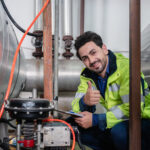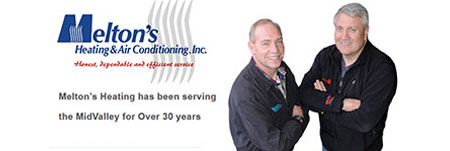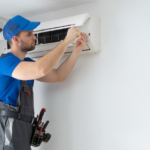
What’s the Best Time of Year to Replace My Furnace?
What’s the Best Time of Year to Replace My Furnace?
A good furnace could potentially last up to 20 years or more, but sooner or later, it’s going to need to be replaced. New furnace sales are expensive, so you’re going to want to try to get the best deal possible on the appliance and labor.
There are several ways to reduce the cost, but one of the best ways is something many people overlook: timing. As long as your current furnace is still working well enough, you could potentially have it replaced any time during the year. So when would be the best time to call a furnace sales shop for an upgrade?
Let’s take a look.
I. Seasons and Furnace Sales
Supply and demand in the furnace industry are heavily influenced by the seasons and weather, in two big ways.
1 – Demand on repair crews
People are running their furnaces hardest during the winter, and that’s when a flaky furnace is most likely to fail. So furnace repair shops are going to be high demand in the winter – and the colder it is, the busier they’re going to be.
So it’s very common for furnace companies to have higher labor prices in the winter, due to basic market forces. Also, they may simply be swamped with work. You could end up waiting for days or weeks for a service call, if you want a new furnace in the middle of the winter.
2 – Manufacturing trends
Furnace manufacturers are also well aware that demand for furnaces tends to change over the course of the year, and set their manufacturing targets to match. So there are fewer furnaces available in the summer than in the fall, for example. However, this tendency can also create shortages. If there’s a particularly harsh winter, furnace sales outlets may find themselves running low on stock before the winter is done.
So more than anything else, the biggest takeaway here is that you should never replace your furnace during the winter if you can possibly avoid it. Prices and availability will both be unfavorable to you.
II. The Best Season for a New Furnace
So when is the best time to buy a new furnace?
Generally speaking, it’s in the late spring or early summer.
By late spring, when everything has thawed, demand for furnace services will go way down – especially as all the backlogged service calls and installations from the winter get sorted out. Likewise, at this time of year, most homeowners aren’t thinking about their furnace. They’re thinking about whatever other repairs or improvements are needed for the summer.
So, calls for furnace repairs and installations will be at their lowest around this time. Many furnace companies even tend to run extra deals and specials, especially if they have overstock from the last season. It’s not guaranteed, but you can usually get a better deal on a new furnace in late spring than any other time of year.
However, don’t wait too long. By late summer, people may already be looking ahead to the winter. And autumn is peak time for proactive owners to do repairs and upgrades before cold weather hits, which will cause prices to start going up.
All things being equal, late spring is the best time for furnace upgrades.
III. Other Benefits to Off-Season Furnace Upgrades
Beyond prices, there are a couple other reasons you want to look into furnace sales during the off-season.
1 – More time to consider
You don’t want to get into fall, realize you need a new furnace, and have to scramble to get it installed before freezing weather hits. Furnaces are expensive long-term purchases, and you definitely want to do as much research as possible before buying.
In particular, do you want to stick to your current style of furnace, or upgrade to a new technology like heat pumps? This is a complicated question, and you want plenty of time to research it before committing to a major purchase.
2 – Better customer service
Any good furnace sales shop is going to want to give great service to every customer, year-round. However, the reality is that that they have limited staff. If the store is swamped with service calls in the autumn and winter, they’re simply not going to have as many resources available to help you.
So calling in the off-season means that they’ll be able to dedicate more time and energy to getting your business. They’ll be able to spend more time consulting with you, and looking at your current setup, so they can recommend the best option for your home. You could easily end up with a better heating solution in the spring than in the fall, thanks to the extra attention.
IV. Is it Time to Upgrade Your Furnace?
If you’re on the fence about whether this year is the right year to upgrade, here are a few other factors to consider.
1 – The age of your current furnace
As mentioned above, a properly-installed and well-maintained furnace should be expected to last at least 15 years, and electric furnaces tend to last longer than gas-burners. But once they start approaching 20 years, they’ll probably start breaking down more often. Upgrading could be more cost-effective than more furnace repairs.
2 – Repair frequency
You should go multiple years without having do to major work on your furnace. If you need repairs every year, it’s time to start thinking about upgrading. And if your furnace needs multiple repairs per year, it’s on its last legs and it’s definitely time for a new furnace.
3 – Energy efficiency
Modern furnaces are far more energy-efficient than models from even ten years ago. If your power bill is too high and you’re thinking long-term, a new furnace or heat pump could end up saving money in the long run through lower power usage.
Melton Heating & Air Conditioning is the best source in Salem, OR, for furnace sales, repairs, and upgrades. If you’re thinking it’s time for new furnace, contact us for top-quality service and support.






